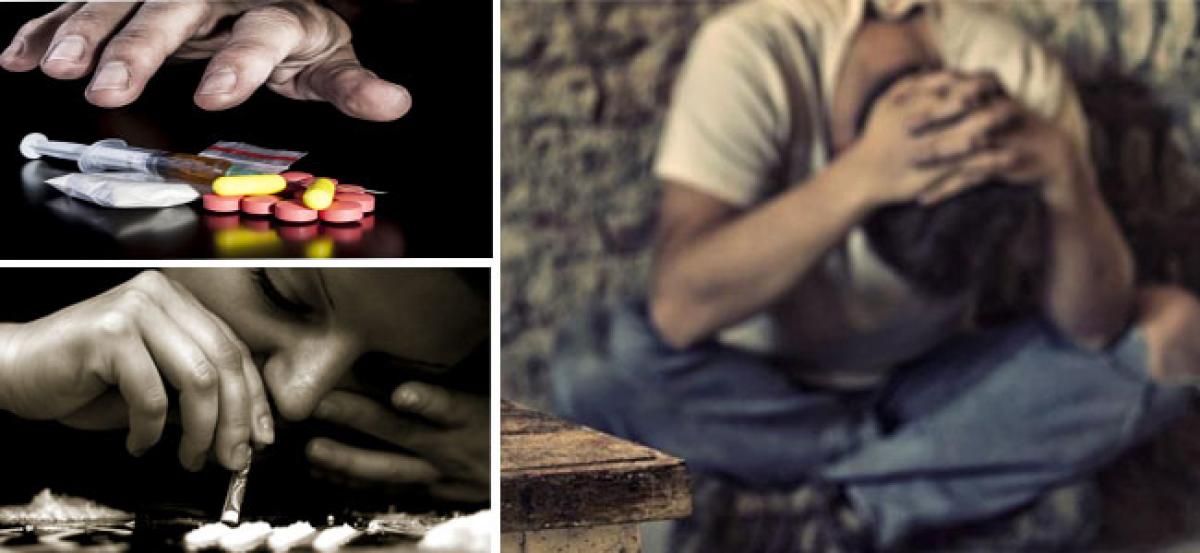Live
- $2.2 trillion in infra investment to help India become $7 trillion economy by 2030
- NLC India Limited’s First Supercritical Power Plant Begins Commercial Operation
- YouTube Expands AI Auto-Dubbing to More Creators
- Australia: Two teens arrested over shooting, car fire in Sydney
- Dedicated Mirasi of Vedanta Desikar temple passes away
- Attacks on Hindus in B'desh: Why are Nobel laureates from Bengal not saying a word, asks Anirban Ganguly
- Civic chief inspects MSME survey
- MLA inaugurates development projects in Chittoor
- SBI offers collateral-free loans to empower farmer groups
- Dist police annual sports meet begins
Just In
Keep a check on your kids habits that can lead to drug addictions


Signs, Symptoms, and Help for Drug Problems and Substance AbuseSome people are able to use recreational or prescription drugs without experiencing negative consequences or
Signs, Symptoms, and Help for Drug Problems and Substance AbuseSome people are able to use recreational or prescription drugs without experiencing negative consequences or addiction. For many others, though, substance use can be an attempt to escape from problems in their lives and has much more serious consequences. The abuse of drugs to cope with life’s problems only makes the existing problems worse and likely causes new problems to develop, leaving feelings of isolation, helplessness, or shame.
If you’re worried about your own or a friend or family member’s drug use, it’s important to know that help is available. Learning about the nature of drug abuse and addiction—why and how it develops, what it looks like, and why it can have such a powerful hold—will give you a better understanding of the problem and how to best deal with it.
Understanding drug use, drug abuse, and addiction
People experiment with drugs for many different reasons. Many first try drugs out of curiosity, to have a good time, because friends are doing it, in an effort to improve athletic performance or ease another problem, such as stress, anxiety, or depression. Use doesn’t automatically lead to abuse, and there is no specific point at which drug use moves from casual to problematic. Drug abuse and addiction is less about the amount of substance consumed or the frequency, and more about the reasons people turn to drugs in the first place as well as the consequences of their drug use. If your drug use is causing problems in your life—at work, school, home, or in your relationships—you likely have a drug abuse or addiction problem.
Addiction is a complex disorder characterized by compulsive drug use. While each drug produces different physical effects, all abused substances share one thing in common: repeated use can alter the way the brain functions.
Taking a recreational drug causes a rush of the hormone dopamine in your brain, which triggers feelings of pleasure. Your brain remembers these feelings and wants them repeated.
When you become addicted, the substance takes on the same significance as other survival behaviors, such as eating and drinking.
Changes in your brain interfere with your ability to think clearly, exercise good judgment, control your behavior, and feel normal without drugs.
No matter which drug you’re addicted to, the uncontrollable craving to use grows more important than anything else, including family, friends, career, and even your own health and happiness.
The urge to use is so strong that your mind finds many ways to deny or rationalize the addiction. You may drastically underestimate the quantity of drugs you’re taking, how much it impacts your life, and the level of control you have over your drug use.

© 2024 Hyderabad Media House Limited/The Hans India. All rights reserved. Powered by hocalwire.com






